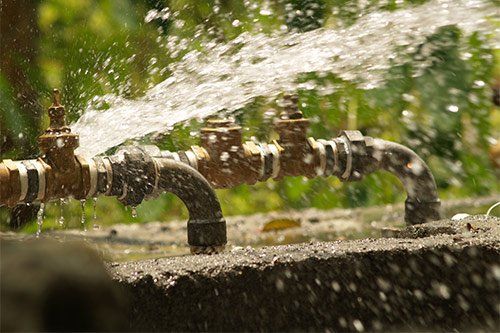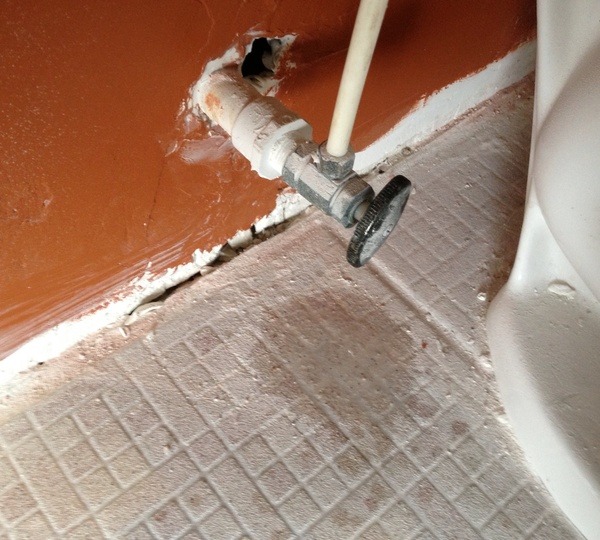The Top 5 Persistent Water Leak Causes
The Top 5 Persistent Water Leak Causes
Blog Article
This post following next about How to Find and Prevent Water Leaks in Your Home is seriously motivating. Have a go and make your own personal findings.

"Beware of little expenditures. A small leakage will certainly sink an excellent ship." - Benjamin Franklin.
He couldn't have actually been extra right since water leakages in our houses cause a waste of sources, boosting our water costs. Although this increase may seem minimal in the beginning, it can result in significant costs that can damage your bank. Apart from a boost in costs, water leaks likewise trigger undesirable natural development, architectural damage, and also electric threats.
Identifying if you have a water leak isn't always simple as a result of being not able to see most of the pipework in your house. However, If you have had an increase in your water expenses recently, noticed water discolorations on ceilings as well as wall surfaces, smelt lousy odor, and so on. You might wish to consider requesting plumbing services to get it had a look at.
There are a number of reasons for water leaks, and we have assembled the common factors below. Check to see if you have had relevant problems in your home lately.
Clogged drains
Food particles, dust, and also oil can trigger clogged up drains pipes as well as obstruct the passage of water in and out of your sink. Raised stress within the gutters can trigger an overflow and end up cracking or breaking pipelines if undealt with. To avoid stopped up drains in your house, we encourage you to stay clear of putting bits away and also routine cleansing of sinks.
High water pressure
You noticed your residence water stress is greater than normal but after that, why should you care? It runs out your control.
It would be best if you cared because your typical water pressure ought to be 60 Psi (per square inch) as well as although your home's plumbing system is made to endure 80 Psi. A boost in water stress can place a pressure on your home pipelines and cause cracks, or worse, ruptured pipes. Get in touch with a specialist regarding controling it if you ever before notice that your house water pressure is higher than common.
Deterioration
As your pipework ages, it gets weaker and also more vulnerable to rust after the regular passage of water via them, which can gnaw at pipelines and also cause splits. A visible sign of deterioration in your home plumbing system is staining and also although this could be tough to detect as a result of a lot of pipelines hidden away. We encourage doing a frequent checkup every couple of years as well as change pipelines once they are old to guarantee a sound plumbing system
Compromised pipeline joints
Pipe joints are the components of our plumbing system where the pipelines attach. It is vital to note that also though pipes are designed to withstand pressure and also last for a while, they weren't made to last permanently; for that reason, they would certainly wear away over time. A typical indication of damaged pipeline joints is too much noise from faucets.
Damaged seals
One more cause of water leaks in houses is damaged seals of home devices that use water, e.g., a dish washer. When such home appliances are installed, seals are mounted around water adapters for easy flow of water with the equipment. A broken seal can create leakage of water when in usage.
With little or no knowledge of plumbing, comprehending your house's plumbing system enough to repair a few of these concerns (without consequence) can be a headache. Contact plumbing specialists in Pittsburgh, Divine Superintendence, Rochester, and also environ today, as well as they'll make those problems vanish.
He could not have been a lot more appropriate since water leakages in our houses result in a waste of sources, raising our water bills. If you have had an increase in your water expenses recently, saw water stains on walls as well as ceilings, scented lousy smell, and so on. A rise in water pressure can place a strain on your house pipelines and also lead to fractures, or worse, burst pipes. An additional cause of water leakages in homes is damaged seals of home devices that make use of water, e.g., a dish washer. When such devices are set up, seals are mounted around water ports for easy passage of water via the device.
5 TIPS IN DETECTING A WATER LEAK IN YOUR HOUSE
Water leaks can be hard to find in your home, yet they can be so common. We rely on water every day in our home, which is why a leak can cause big problems. By detecting them early, you can save money and further damage, getting the problem fixed as soon as possible. Here are 5 tips to help you detect a water leak in your home, so you can contact a plumber straight away and get the issue sorted.
Check your water meter
Many people underestimate the value of the water meter in their home. It can be one of the best ways to tell if you have a leak early on, so you can get on top of it before issues start arising. Start by turning off all the water in your home: taps, washing machine, dishwasher, etc. Now take a look at the meter – if it’s still changing with everything turned off, it’s likely you have a fast-flowing leak that you need to get on top of straight away. If nothing changes, then leave your meter for an hour or two and come back to it. Did it change in this time? It’s likely you have a slower leak, which isn’t as urgent but still handy to get fixed so it doesn’t become a bigger problem.
Keep an eye on your bill
Another good way to detect a leak in your home is by keeping an eye on your water bill. It helps if you have a past bill from the same period of time. You can compare like for like and determine whether your water usage has increased significantly. If it has, there may be a leak in your system that you haven’t picked up before. A professional plumber can check through all of your pipes and determine where it is coming from.
Look for damage
If you have a leak inside your home, you will notice damage over time. Take a look at your showers and bathtubs and note whether any of the tiles surrounding the area seem to be discoloured or damaged in any way. There may be water stains, mould or peeling material that has resulted from a build up of moisture over time. Make sure you take a look under sinks at the back of cupboards that don’t get accessed regularly. This is where damage can go unnoticed and build up over periods of time.

I came across that blog posting about Where to Find Water Leaks while browsing the web. Do you know about another individual who is sincerely interested in the niche? Be sure promote it. Thank-you for taking the time to read it.
Secure fix? Call. Report this page